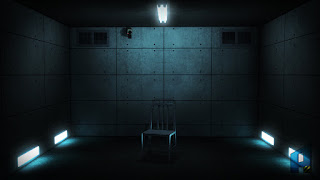A few minutes ago, I scooted my desk chair up next to the closet, used it as a footstool, and opened the cabinets to swing down my two suitcases. Now they're half full with button-down shirts, running shorts I never did use, and the trinkets I've accumulated during three months of study in York, U.K. I'm getting ready to say goodbye. Hello, my old friend.
This will not be the saddest or most traumatic of the goodbyes I've said in my life. Third culture families know how it is. My parents have lost everything to rushed evacuations. We've exchanged continents and countries multiple times. Mom thought she was bidding permanent farewell to Dad when he chose to remain in Liberia during the civil wars. And sometimes, you don't get to say goodbye. Sometimes, the chance is taken from you.
You know how it is. That ache, deep in the pit of your belly. That numbness, dulling the edges of your brain.
Sometimes you don't get over it.
I think there's an expectation for these types of reflections: "Don't cry because it's over, smile because it happened." But I'm not about that life. I mean, I am, but that's not a legitimate way to deal with grief. Weep. Weep for the loss, weep for the pain, weep for the friends left behind. Weep because something that brought you joy will never return. There may be other joys. They may be grander. But this joy, this beautiful sliver right here, has ended. And you will never get it back. Face that. Maybe you don't need to weep, or need your mom's friends to psychoanalyze you (they will anyway), but acknowledge your loss in whatever way works best for you.
Those accustomed to goodbyes develop rituals. Songs, movies, things we do before we leave. When I packed to leave Nigeria after senior year of high school, I listened to Coldplay's "Til Kingdom Come" over and over again. It's a song about life moving on, about someone who waits for you through the changes and uncertainty. To me, that person represents God.
"Steal my heart, and hold my tongue,
I feel my time, my time has come.
Let me in, unlock the door.
I've never felt this way before.
The wheels just keep on turning,
The drummer begins to drum,
I don't know which way I'm going,
I don't know which way I've come . . . ."
I listen to that song every time I leave a place.
For my sister, the song was John Denver's "Leaving on a Jet-Plane." And in Nigeria, at a mission guest house where many missionaries stay before departing that final time, there's a bunk bed in one room where dozens of MK's have Sharpied their emotions and graven their names. Some little piece of themselves, remaining in the place they called home. The place that could never be home. The place that will always be home.
Sometimes we don't greet the goodbyes. I've had friends and family who've lost clumps of hair over the stress of leaving, and others, including myself, who've cut everyone off, become instinctively mean to chase friends away. Still others refuse to acknowledge that it's sad, and rejoice that they're returning to "civilization," until years later when they realize what they've lost.
Let me tell you a secret: sometimes I get so, so jealous of my "normal" American friends. I am tempted to belittle their pain: "No, you don't get to say that your half-year mission's trip was 'life-changing.' I lived overseas my entire life; you can have your Thanksgiving, you can have your Independence Day, but you can't have this. This pain belongs to me."
But that's wrong. Every place we visit clings to our souls, like wet paper. Every place becomes a part of us, no matter how briefly. I am addicted to that sort of pain, because I know it helps me grow, though it hurts like hell at the time.
As I leave York, I will walk the Roman walls, I will do my writing, I will sip my mulled cider, I will listen to my songs. I will perform my rituals to greet the goodbye.
But greet her I will.
And as we leave together, she will put her arm around me, and I will say, "It still hurts this time." And she will say, "I know, Luke. You're welcome."
She is familiar to me, even when nothing else is. As strange as it sounds, I take comfort in that. That is why I greet her. That is why I know how to say goodbye.
 |
| Goodbye, my beautiful city |















